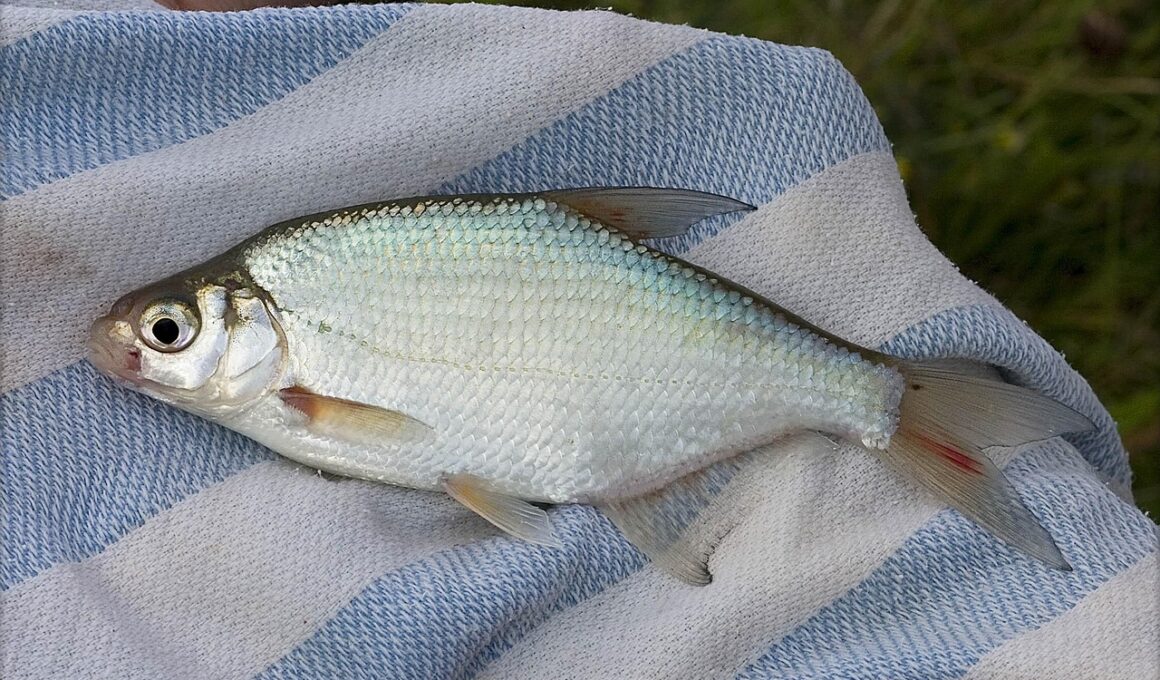Saltwater vs. Freshwater Fishing: Key Differences
Fishing in saltwater and freshwater presents unique challenges and experiences that attract enthusiasts worldwide. Both types offer diverse benefits and require distinctive skills. Compared to freshwater fishing, saltwater fishing often involves larger fish species, more significant challenges, and the thrill of ocean environments. In-depth knowledge about gear types, bait varieties, and locality specifics is crucial for successful saltwater fishing. Freshwater fishing, meanwhile, is generally more accessible and offers a broader range of idyllic settings such as lakes, rivers, and ponds. Local regulations dictate when and where fishing is allowed. Always check these rules to ensure sustainability and conservation of the fish populations. Different regions also host various iconic species, including trout in mountain streams and bass in local lakes. Both forms of fishing can have significant personal and ecological impacts, requiring responsible angling practices to maintain wildlife health. The right choice between saltwater and freshwater fishing largely depends on individual preferences and capabilities. Ultimately, both fishing types offer immense adventures and memorable experiences that captivate outdoor enthusiasts.”},{
Understanding the characteristics of saltwater and freshwater fish is essential before engaging in fishing activities. Saltwater fish, such as tuna, marlin, and snapper, typically inhabit oceans and can thrive in high saline environments. They often grow larger and fight harder than their freshwater counterparts. Targeting these species usually involves additional gear and equipment, such as heavier rods, reels, and specialized bait. Freshwater fish, like trout, catfish, and bass, are generally smaller and more accessible. They live in ponds, lakes, rivers, and streams, and using lighter gear is usually sufficient. Moreover, anglers can enjoy spontaneous fishing trips without extensive travel. The techniques used in each environment can vary significantly. Saltwater fishing often requires techniques like trolling, deep-sea fishing, and using heavy tackle. In contrast, freshwater fishing can involve bait fishing, fly fishing, or spinning. Understanding these nuances will help beginners to develop effective methods to catch their desired species. Overall, both types of fishing cater to different skill levels, ensuring that everyone can embark on a fishing journey suited to their abilities and surroundings.”},{
Environmental Considerations
Environmental factors play a crucial role in fishing success and sustainability. Saltwater ecosystems are often more delicate due to factors like pollution, overfishing, and climate change affecting marine life. Anglers must recognize their impact on these habitats while striving for responsible practices. Coastal fishing industries depend on healthy populations, making it vital to follow regulations to promote recovery efforts. Freshwater fishing, while less impacted by saline factors, also faces challenges from land development and water sourcing. Protecting waterways from pesticide runoff and preserving natural habitats are significant conservation efforts. Understanding local ecosystems helps anglers contribute positively to environmental preservation while enjoying the sport. More activism and awareness regarding fish stocks and habitat health can influence the overall fishing experience. Anglers should respect catch limits and practice catch-and-release methods when necessary. Doing so contributes to sustaining local fish populations and fostering recreational opportunities for the future. In both saltwater and freshwater contexts, the importance of ecological awareness is paramount for anglers who wish to maintain environmental integrity.”},{
Gear and tackle selection is another critical factor distinguishing saltwater and freshwater fishing. Saltwater fishing requires robust equipment designed to withstand corrosive environments. Rods, reels, and line must be heavy-duty, as using lighter gear can result in tackle failure. Specialized terminal tackle, such as saltwater hooks and sinkers, should also feature in any saltwater angler’s kit. Additionally, the choice of bait can significantly affect success; live bait like shrimp or mullet is often favored for saltwater fishing. On the flip side, freshwater fishing requires lighter, more versatile setups. Anglers can choose spinning reels, baitcasters, or fly-fishing gear depending on their target species and preferences. Both types of fishing utilize a range of lures, baits, and techniques to attract fish effectively. Understanding how to use different gear for each environment enhances anglers’ chances of landing a trophy catch. Knowledge about local fishing gear stores or online tutorials can be invaluable for beginners. Selecting the appropriate tackle is essential for a rewarding and enjoyable experience while improving one’s fishing skills across both environments.”},{
Seasonal Variations and Timing
The timing of fishing activities significantly influences success rates for both saltwater and freshwater fishing. Seasonal variations such as spawning cycles, weather conditions, and lunar phases affect fish behavior and feeding patterns. In saltwater fishing, some species are abundant during specific seasons, making it crucial for anglers to research migration patterns and seasonal trends. For example, inshore species like redfish and speckled trout often feed heavily during summer months when temperatures rise. Conversely, winter months restrict activity, making visibility and bait selection vital elements for success. Freshwater fishing also entails similar considerations. Specific fish species have defined seasonal habits, with many being more active during the spring and fall months. Many anglers unite during these popular times to ensure their chances of a successful day on the water. Weather conditions profoundly influence fish behavior, from post-rain fishing to cloudy days encouraging increased surface feeding. Continual education and attention to seasonal patterns will optimize any angler’s chances while contributing to more effective and impactful fishing experiences in both environments.”},{
Community and culture surrounding saltwater and freshwater fishing contribute to their unique identities. Anglers often bond over shared experiences, creating a web of friendships and camaraderie in local fishing communities. Saltwater fishing culture is often rooted in charities and sport fishing events focusing on conservation efforts. These events bring together anglers while promoting preservation initiatives and creating positive change. Freshwater fishing also features charitable events, including local tournaments and festivals, which draw anglers from various regions. Both environments cultivate relationships and foster a sense of responsibility among anglers toward ecological sustainability. Social media and online communities further connect individuals as enthusiasts share tips, experiences, and knowledge. This culture of learning adds depth to the fishing community and encourages collaboration. Knowledgeable anglers often mentor newcomers, ensuring traditions and skills are passed down through generations. Building these supportive networks ultimately enriches the fishing experience for everyone involved. The community aspect highlights the shared passion for fishing while emphasizing the need to protect and maintain valuable resources, creating an interconnected network of angling enthusiasts.”},{
Conclusion
In conclusion, understanding the differences between saltwater and freshwater fishing is vital for any passionate angler. Each environment offers distinctive challenges and opportunities that shape individual preferences. The choice between these fishing types ultimately depends on factors such as personal curiosity, accessibility, and the desired experience. Engaging in both saltwater and freshwater fishing can provide many rewarding moments in nature, fostering a deep appreciation for aquatic ecosystems. Furthermore, knowledge regarding environmental sustainability, seasonal variations, and local regulations can enhance each fishing adventure. As anglers delve deeper into their fishing journeys, building connections with fellow fishing enthusiasts and nurturing responsible practices will significantly benefit the sport. Whether choosing the exhilarating challenges of saltwater or the tranquil joy of freshwater, each angler can take pride in their fishing experiences. Both options contribute to lifelong memories, new skills, and a greater connection to the environment. Embrace the journey of fishing, explore different waters, and enjoy captivating experiences that await in both saltwater and freshwater settings.


